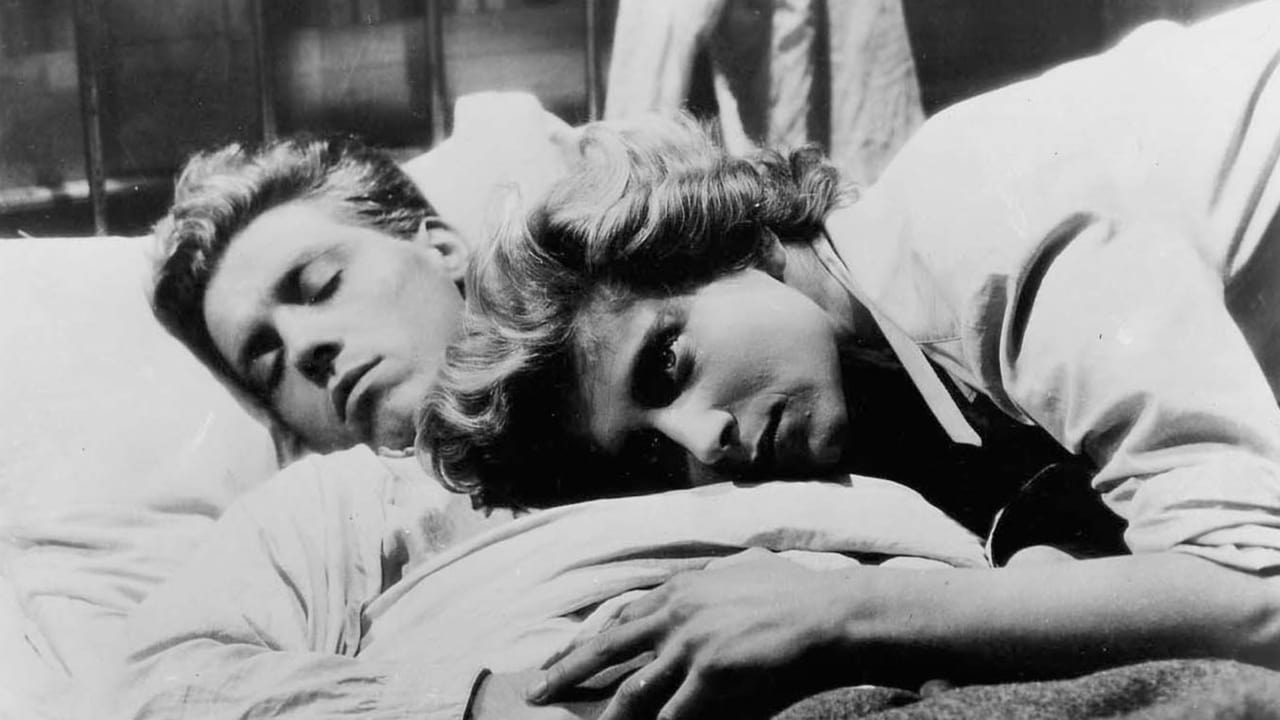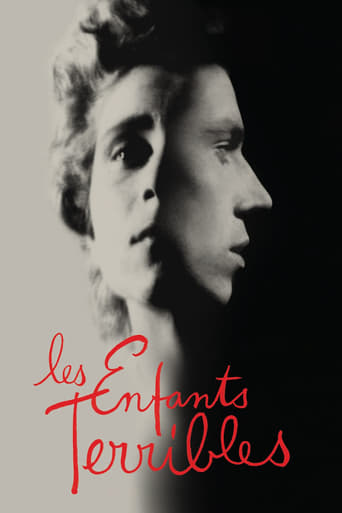

Very well executed
... View MorePurely Joyful Movie!
... View MoreThis movie was so-so. It had it's moments, but wasn't the greatest.
... View MoreThrough painfully honest and emotional moments, the movie becomes irresistibly relatable
... View MoreTechnically a cinematic masterpiece with some excellent acting, particularly on the part of Nicole Séphane, but this Greek drama of a family and some young people living together with relationship complications doesn't give an altogether good taste in your mouth. Why are people usually so mean and cruel in French films? There is very little humanity here, love is not sincere, Elisabeth is callous and cruel and actually evil in her possessiveness, it's like one of the worst novels of Balzac (of whom Charlotte Brontë complained that he always gave her such a bad taste in her mouth), and this lack of humanity gives this masterpiece an ugly touch of almost inhumanity. Its brilliance fades into the shadows of the meaninglessness of its cruelty and pettiness, they don't do much else than quarrel and fight throughout the movie, and it all seems so pointless. Did Jean Cocteau have any meaning with writing this play except to produce a technically perfect analysis of how young people perish in the destructiveness of their relationships? The language, the photo, the acting, the music, everything is perfect but is consumed by its own pettiness in a dwindling spiral of human claustrophobia.
... View MoreElisabeth is very protective of her teenage brother Paul, who is injured in a snowball fight at school and has to rest in bed most of the time. The siblings are inseparable, living in the same room, fighting, playing secret games, and rarely leaving the house; though Paul's friend Gerard often stays with them.To me, Melville is most associated with crime thrillers, sort of a master of the post-noir or neo-noir genre. This is certainly not that, and really has nothing criminal or noir about it, though it does have the black and white cinematography. (Not "noir photography", but still.) What is this film trying to say? Who are the "terrible children"? What is jealousy, and what is attraction? Darned if I know.
... View MoreFrench actor, producer, screenwriter and director Jean-Pierre Melville's second feature film which he produced and co-wrote with Jean Cocteau, is an adaptation of a novel from 1929 by French poet, author, playwright and filmmaker Jean Cocteau (1889-1963) who was recovering from an opium addiction while he wrote the novel. It tells the story about the young siblings Paul and Elisabeth who lives with their bed-ridden mother whom is taken care of by her daughter. Paul and Elisabeth has isolated themselves from the world and in their shared room they have created their own private universe. After being hit by a snowball at school by his friend Dargelos whom he admires, Paul becomes ill and is nursed by Elisabeth. During the time when Elisabeth takes care of her brother, they evolve an incestuous relationship and creates an emotionally afflicting game. Paul and Elisabeth joyfully keeps on playing their inside games even after their mother passes away and doesn't conceive much of what is going on in the outside world, but their closed imaginary world is shattered when visitors from the real world begins to show up. This distinctly directed French production which was shot on various locations in Paris, France draws a vivid and detailed portrayal of a strangely erotic and tormenting relationship between a brother and a sister who in their secluded world invents a seemingly childish though unrelenting and unrestrained game where the aim is to inflict as much emotional harm on one another as possible. Independent filmmaker Jean-Pierre Melville's character-driven, dialog-driven and continually and increasingly intriguing chamber-piece about the abnormal intimacy and the forbidden attraction within a brother-sister relationship where the insinuations of incest are prominent, incisively depicts two intertwining studies of character. Visually, this lyrical coming-of-age tale is marked by it's dreamlike production design by Jean Pierre-Melville (1917-1973) and Emile Mathys, black-and-white cinematography by cinematographer Henri Decaë (1915-1987) and milieu depictions. Intimately narrated by Jean Cocteau and finely paced, this dark mystery of merging personalities is charged by it's quick-witted dialog and the poignant atmosphere which is increased by the music from Johann Sebastian Bach (1685-1750) and Antonio Vivaldi (1678-1741). This invariably moving psychological drama is reinforced by it's stringent narrative structure and the unflinching and empathic acting performance by French actress Nicole Stéphane (1923-2007) and the understated acting performance by Italian actor Edouard Dermithe (1925-1995). A bleak and maliciously humorous character drama which gained a nomination for Best Foreign Actress Nicole Stéphane at the sixth BAFTA Awards in 1952.
... View MoreThis movie inspired the 1990's movie classic Problem Child 2. However, the production of this earlier clone is far weaker. The cinematography is not a patch on Problem Child 2. The performances are variable. Some average, some awful. The problem with this movie is that it wants to be an outright comedy but refuses to admit it. At times you can sense that the director was longing to put a banana skin in the path of its main character. The scene with the terrible child. That could have been far superior if the child had thrown a bucket of custard over the adult and ran off. There are too many scenes in which the main characters do not do anything remotely hilarious. Missed opportunities are the achilles heel of this movie.
... View More